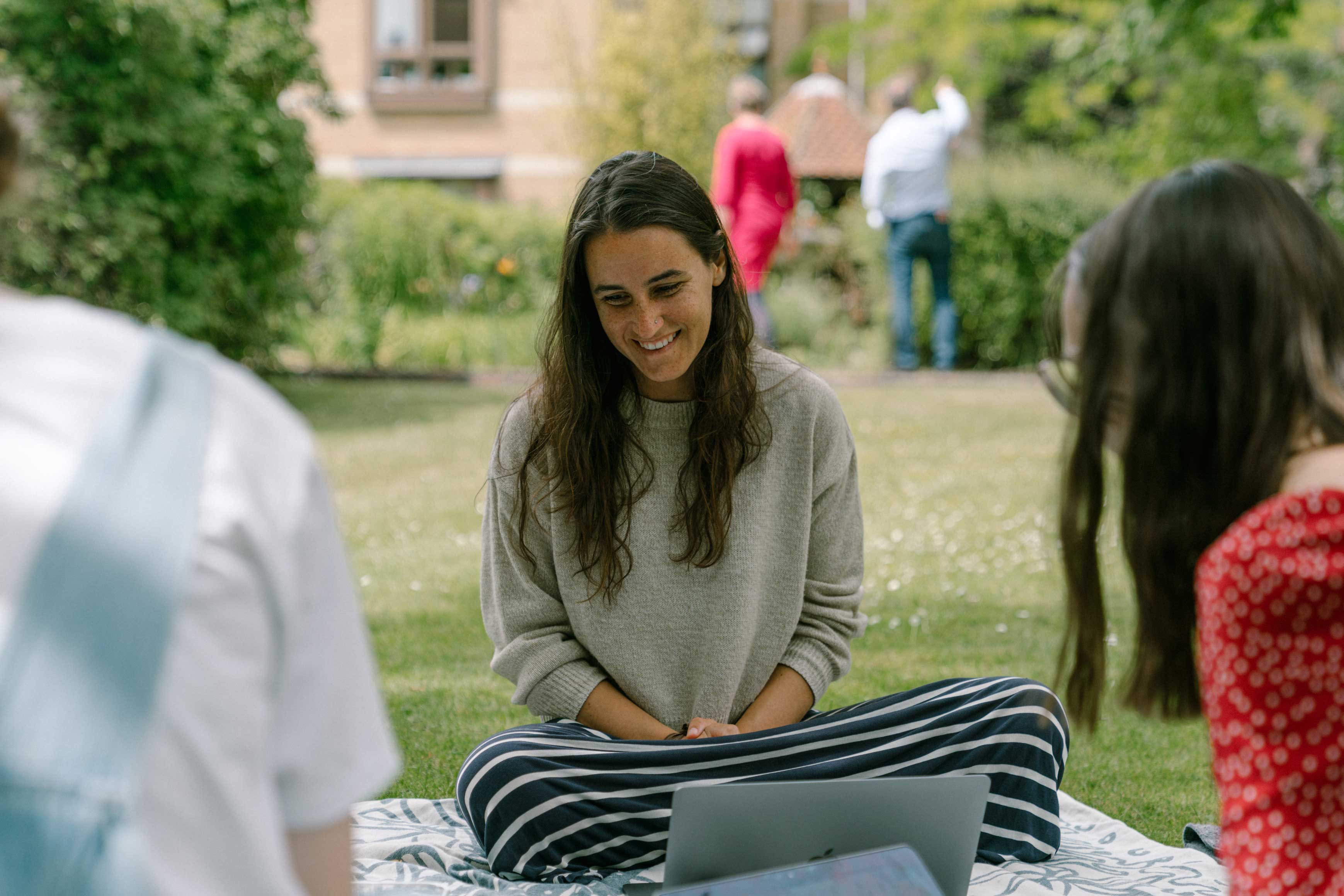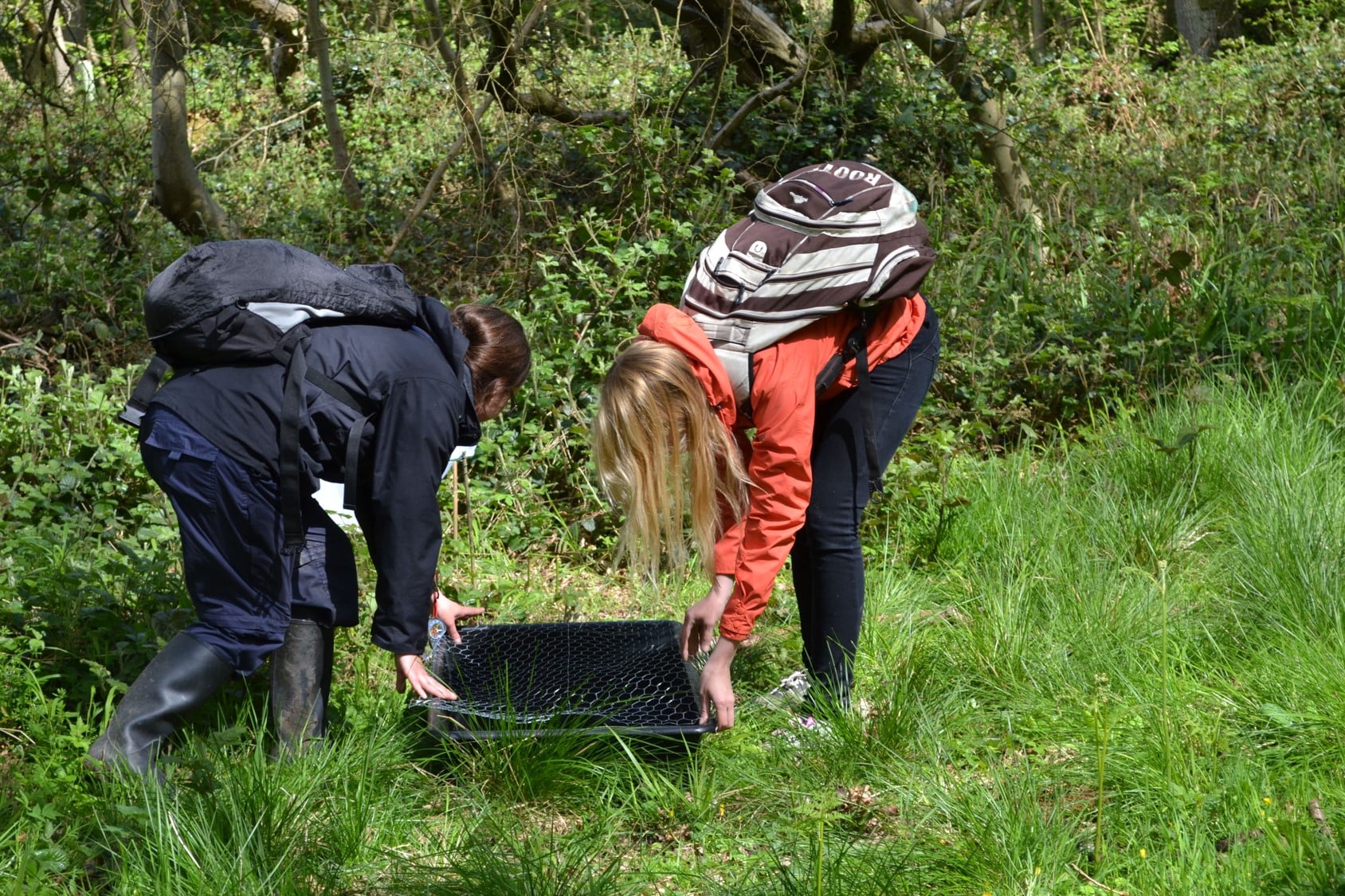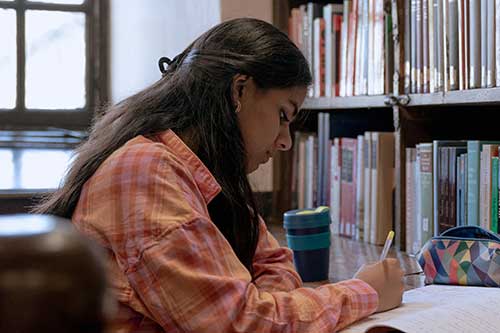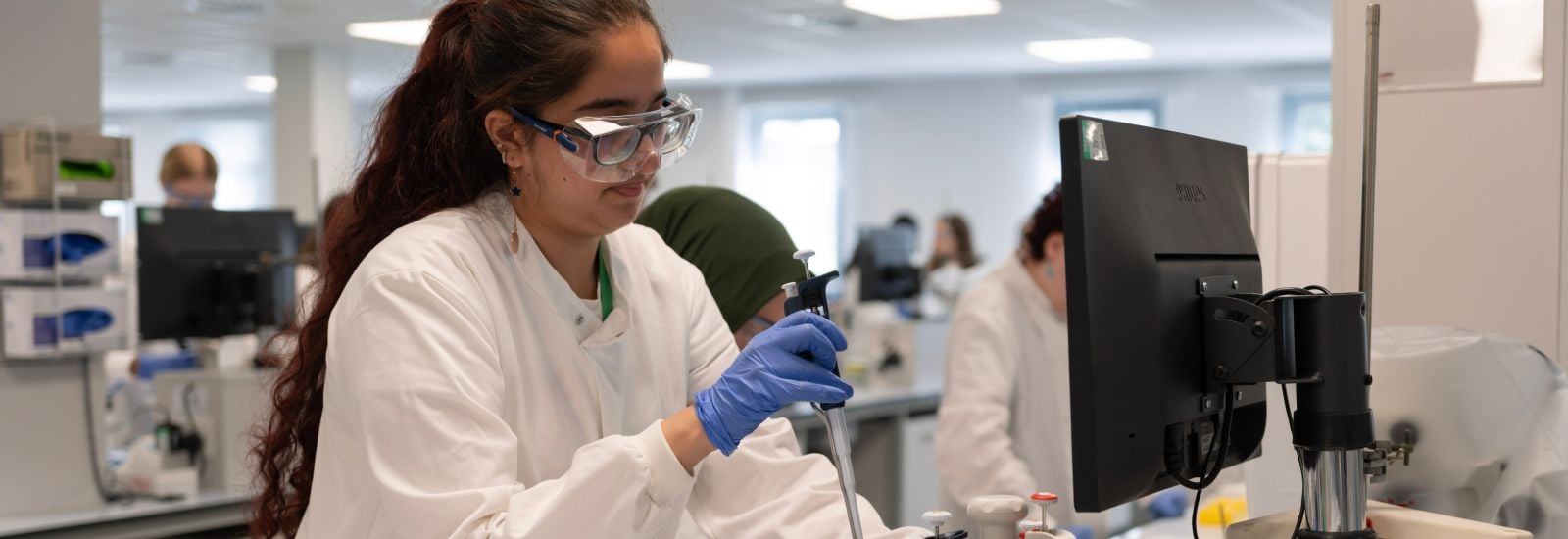Learning at Oxford
Oxford is famous for offering one of the best educations in the world.
One of the reasons for this is the distinct way subjects are taught. You’ll have individual access to world-class academic experts; this may be in tutorials, lectures, classes, laboratory work or fieldwork, and you'll also learn to study independently. Even at undergraduate level, you will be encouraged to do your own research and may have the opportunity to support the research of our academics.
I think the teaching is outstanding. The quality of the lectures, tutorials, and practicals is incomparable to anywhere else. I have really benefited from the attention and challenges of small group tutorial learning which has driven me to work harder and learn more than I thought I could and still enjoy it.
Joe
I realised Oxford was the university for me when I found out how small the classes are here. I’m a Fine Art student and we get a lot of support from the tutors in one-to-one sessions, which really helps you develop your practice.
Harmanpreet
PERSONALISED TUTORIALS
Tutorials are central to teaching here. They are conversations, normally between two or three students and their tutor, and offer a rare level of personalised attention from academic experts. Tutorials are regular, rigorous academic discussions, and provide individual and consistent feedback on work.

OTHER TEACHING
As well as teaching in tutorials, many courses have seminars or practical sessions such as fieldwork, each week. Depending on your course, these are likely to concentrate on particular topics or focus on developing a particular skill. These classes might also give you an opportunity to find out more about the current research being undertaken by academics in your subject department. You are also likely to have some lectures to attend that will cover important topics relating to your course.

INDEPENDENT STUDY
Students at Oxford, particularly those doing humanities degrees, spend much of their time working independently. All our undergraduate courses are full-time, and on average students spend around 40 hours a week studying. Students are expected to do their own research and develop their own knowledge and understanding usually by working through a reading list to complete a problem sheet or essay.
Many courses also give you the opportunity to follow your own in-depth research for a dissertation or project. These pieces of independent research often take place towards the end of a degree and allow you to focus on a subject that you've found particularly interesting. You will have the opportunity to develop strong research skills.

Sign up to our Choosing Oxford newsletter and visit our undergraduate admissions website for all the latest information about applying to Oxford.
Please fill in our feedback form about this prospectus to be entered in a prize draw.
Our 2025 University-wide undergraduate Open Days will be held on 2 and 3 July and 19 September. Further information will be published on our website in the build up.
